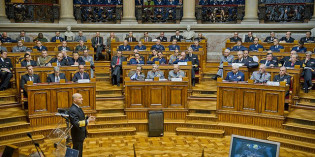Achieving accountable government

‘Nudges’ may be effective at times, but policymakers will be disappointed if they rely on them to tackle entrenched problems
Since the publication of 2008’s Nudge by Richard Thaler and Cass Sunstein, policy ‘nudges’ have been in fashion, with smaller interventions aimed at altering public behaviour in a subtle manner being adopted by many governments, including in the UK. Frank Mols looked at this phenomenon in a recent journal article, and argues here that while nudges undoubtedly can […]

Expectation management: can politicians win back political trust by limiting what the public expects of them?
Politicians may be feverishly campaigning for votes, but fewer and fewer citizens say they trust them and the institutions they inhabit. In this post, Ben Seyd considers what politicians can do to strengthen the public’s confidence in their work. He suggests that trust may not be responsive to the expectations that people have of politicians; […]

Newspapers focus on who MEPs are rather than on what they do in the European Parliament
For the European Parliament to confer legitimacy on the EU’s legislative process it is necessary for voters to be aware of the actions taken by MEPs. But how do newspapers cover the work of the Parliament? Based on a study of newspaper coverage of 302 MEPs, Katjana Gattermann and Sofia Vasilopoulou write that the visibility of […]

The Speaker election row tells us two important things about parliament
On 26 March, its final sitting day, the House of Commons rejected government proposals to reform how the Speaker is elected at the start of the new parliament. Here Meg Russell reflects on what this teaches us about parliament, suggesting it holds two lessons. First, that the 2010 House of Commons was more resistant than […]

National parliaments are not the losers of EU integration – at least not anymore
Eurosceptics like to argue that Parliament has become in part redundant following transfers of power from the national to the European level. Katrin Auel, Olivier Rozenberg, and Angela Tacea argue that contrary to this, national parliaments in Europe have not become inconsequential in making policy at the European Union level in the wake of the Lisbon […]

Book Review: Britain’s Nuclear Experience: The Roles of Beliefs, Culture and Identity
This book examines Britain’s nuclear experience by moving away from traditional interpretations of why states develop and maintain nuclear weapons by adopting a more contemporary approach to political theory. Michael Warren finds this is a thorough, yet accessible examination of the thought processes of the decision-making core of politicians, civil servants and military leaders. Similar PostsThe […]

Who forms the UK government in the event of a hung parliament?
The polls continue to predict a hung parliament after the May 2015 election in which more than one potential government could be viable. In this context, Petra Schleiter and Valerie Belu ask how government formation negotiations will proceed and which actors will have a privileged role in the bargaining process? Similar PostsWhy the UK needs improved caretaker conventions before the […]

The geopolitical implications of the House of Commons’ decision to reject military intervention in Syria
In August 2013, the House of Commons rejected a Government proposal to intervene in the Syrian conflict following that country’s regime’s use of chemical weapons. Here, Dr Kristian Coates Ulrichsen assesses the geopolitical implications of that dramatic night in the House of Commons, arguing that it decisively stopped the momentum towards war. The dramatic House […]

If we really want to address elitism in this country we must be willing to take very seriously the ‘class ceiling’
The hidden barriers, or ‘glass ceiling’, preventing women from getting to the top are well documented. But as Sam Friedman and Daniel Laurison explain, the upwardly mobile also face a powerful and previously unrecognised ‘class ceiling’ within Britain’s elite occupations. Similar Posts‘Stuck in their ways’: how we blame the poor for their failure to embrace globalisationThe […]



 Democratic Audit's core funding is provided by the Joseph Rowntree Charitable Trust. Additional funding is provided by the London School of Economics.
Democratic Audit's core funding is provided by the Joseph Rowntree Charitable Trust. Additional funding is provided by the London School of Economics.